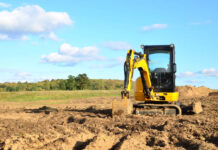While it is possible for ecosystems to be self-sustaining like big y knowledgenet, it is also possible for a small change to cause the entire ecosystem to crash. That’s why having a strong ecosystem can be so important. If you recognize some of these warning signs that your ecosystem may be in trouble, take steps now to prevent them from becoming reality:
1. Crippling diseases
If someone hands you a bucket of contaminated water, would you drink from it? If you did, then you live in an unhealthy ecosystem. What does this have to do with living in an ecosystem? Ever since humans have been on the planet, we’ve suffered from agricultural diseases and droughts. We also suffer from “natural” disasters that damage our environment. Modern agriculture has made us dependent on crops and disasters
So if any ecosystem becomes closed-loop dependent on agricultural products that they can’t grow themselves, they are going to become vulnerable to disease and natural disasters. This is one of the many reasons why we should keep growing our ecosystems.
2. Loss of biodiversity
Biodiversity is the variety of life. It’s a measure of how many different species there are in an ecosystem. When we see losing biodiversity, it could be a sign that the ecosystems are either dying or that we are trying to support too many species .
One way to avoid losing biodiversity is to maintain a healthy ecosystem ; however, there’s no doubt that humans have already done this. While we’ve lost a lot of diversity due to agriculture and pollution, we’ve also lost diversity through industrialization and deforestation. While our human population numbers more than 7 billion people, there are more than 1 million species on Earth today.
3. Overpopulation
It’s a common human misconception that the more people grow, the more food they can produce and therefore, the more resources we have available. Well, this is not true. When farmland becomes crowded or overused, these fields become less fertile . That’s not to say that we should all move to island nations where there isn’t any farmland. We just have to limit our need for land and resources so that we don’t overpopulate ourselves.
4. Loss of food sources
The same thing happens in ecosystems when too many species compete for available food sources. In addition, if an ecosystem has lost its soil fertility , it will struggle to support large populations of plants and animals. This can make the ecosystem unstable
5. Loss of natural predators
One way that humans have limited our biological diversity is by establishing large cities. This has helped us eliminate many of our natural predators. These cities have also provided us with many advantages like modern medicine and access to information, but it also eliminates a lot of the biodiversity that is important for healthy ecosystems. So if we lose our predators or simply become too comfortable, we can cause the loss of some crucial species.

6. Pollution
Pollution can be just about anything from oil spills to farming chemicals . It occurs when over-farming and over-consumption leave land so contaminated that it cannot support other plants or animals without suffering from pollution as well. This not only makes food less accessible to creatures that are dependent on the land, but it can also be harmful to humans. The same thing happens in ecosystem , when we overdo something, the rest of the ecosystem suffers as well
7. Inorganic pollution
There’s also an opposite kind of pollution called inorganic pollution . This occurs when a certain type of chemical is absorbed by living organisms and builds up in their tissues. Our bodies aren’t designed to handle these chemicals, so they eventually kill off the polluters themselves or they eat other creatures that no longer have enough food to support them. Inorganically polluted ecosystems usually lose their ability to reproduce.
8. Land-use change
Land-use change is the process of using land for a different purpose or different ecosystem than it was intended to support. The most widely used form of land-use change is agriculture. When humans began to use land for farming, there was not enough food for other creatures that needed it. This led to many changes in the ecosystem as organisms that could no longer survive were lost
9. Overdevelopment
Overdevelopment is the use of land for a purpose that it wasn’t intended for. When people overdevelop, they usually cut trees, flatten hills and damage other natural resources to make room for more buildings or factories. This is a clear sign that the ecosystem can no longer support its inhabitants.
10. Overpopulation
Overpopulation is a problem that occurs when a species has become so dependent on humans or human-produced resources that they have outgrown the capacity of their ecosystem. Overpopulation may also occur when there are not enough resources to support a large population. There are many factors that contribute to overpopulation, but some of the most common contributors include urban sprawl, heavy use of pesticides and fertilizers, and the extinction of natural predators.
Conclusion:
Ecosystems are no longer as important as they used to be. We can now produce enough food, recycle our water and live in cities that make us much more comfortable. While humans have always evolved, we now have the ability to do so in a variety of ways too. While much of this evolution has been beneficial, it is also leading to the extinction of many species that we depend on for survival. There’s no denying that our way of life is unsustainable , but there are things we can do to slow down the rate at which ecosystems are becoming extinct and they will allow us to continue living like we do today.








